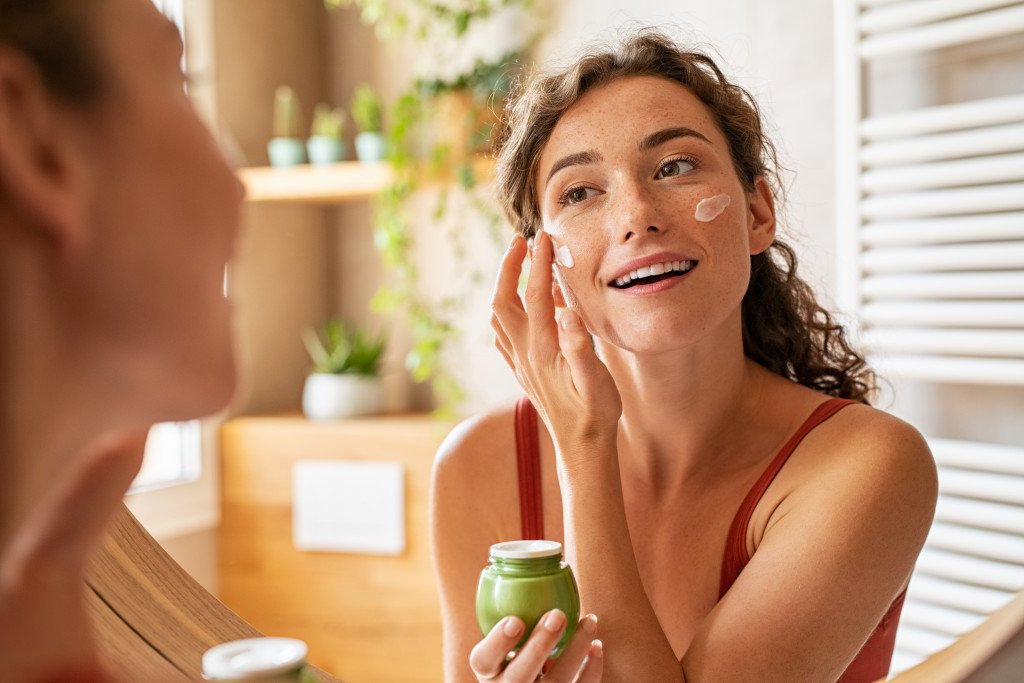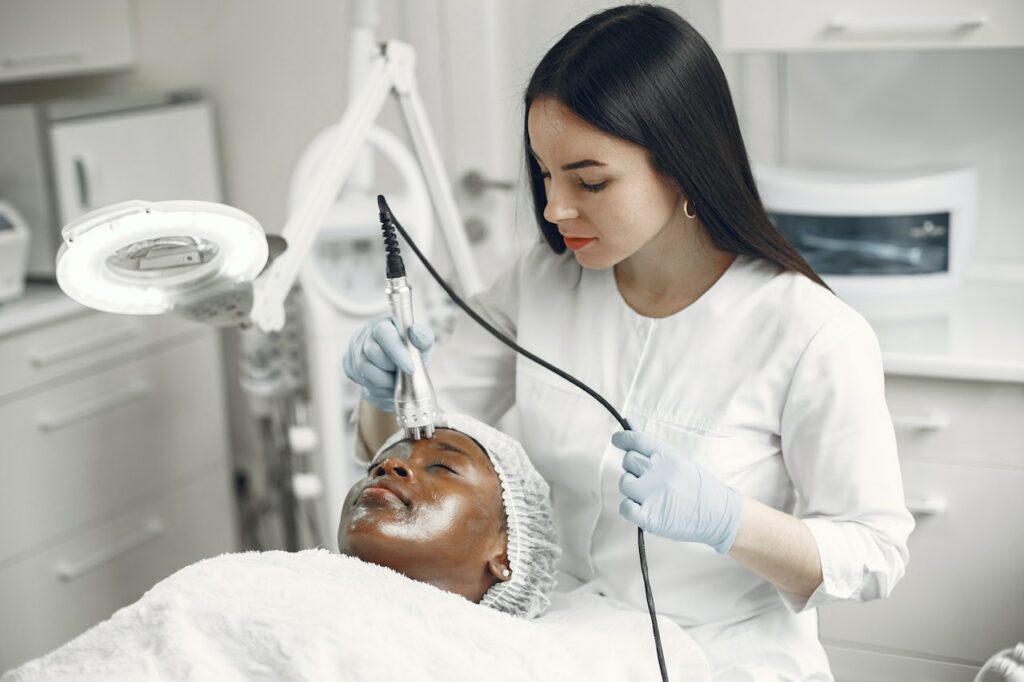- Creating a skincare routine and using products tailored to skin type can help maintain healthy skin.
- People with clear skin are perceived as healthier, more attractive, and more successful than those with acne or other skin issues.
- Sun protection is essential for minimizing UV radiation damage and the risk of developing skin cancer.
- Professional advice from a dermatologist is recommended for more severe skin problems such as cystic acne or eczema.
Having clear skin can have a positive impact on a person’s self-esteem and confidence. According to the American Academy of Dermatology, an estimated 85 percent of individuals experience some form of acne in their lifetime, leading to insecurity, depression, and low self-esteem. Studies have found that those with acne are more likely to suffer from depression and anxiety than those with clear skin, underscoring the importance of having healthy skin.
Clear skin can also help people feel more socially accepted. A study by researchers at the University Medical Center in Amsterdam found that people with clear skin were viewed as healthier, more attractive, and more successful than those with acne. The study also revealed that people were likelier to trust someone with unblemished skin. This is especially critical in performance or job interviews, where employers often make snap decisions regarding the candidate’s suitability based on physical appearance.
As a result, caring for your skin will be vital for looking and feeling your best. To ensure that you have healthy skin, try the following:
Creating a Skincare Routine
Having a consistent skincare routine is essential for healthy skin. A personalized skincare routine should include four key steps: cleansing, toning, exfoliating, and moisturizing.
Cleansing
The first step of any good skincare routine should be cleansing. Cleansers remove dirt, sweat, oils, and makeup from the skin. It is essential to use a cleanser tailored to your skin type; for instance, a gentle cleanser with natural ingredients might be ideal for sensitive skin. Additionally, using lukewarm water and avoiding harsh scrubbing can help minimize irritation to the skin.
Toning
Toning helps to restore the skin’s pH balance after cleansing and helps to clear away excess dirt or oil left on the skin’s surface after cleansing. Toners are available in alcohol-based, non-alcoholic formulas with natural ingredients such as chamomile or witch hazel extract. Alcohol-based formulas can help reduce breakouts, while herbal toners can help soothe inflammation and redness caused by acne or allergies.
Exfoliating
Exfoliation is an essential part of any skincare routine since it helps to remove dead skin cells that accumulate over time and contribute to clogged pores which can cause breakouts. There are two types of exfoliants: physical and chemical exfoliants. Physical exfoliants come in scrubs or cloths and work by manually removing dead cells from the skin’s surface. In contrast, chemical exfoliants use an acid such as glycolic acid or salicylic acid to dissolve them away instead. It is essential not to over-exfoliate since this can cause inflammation and further damage the skin barrier.
Moisturizing
The last step in any skincare routine should be moisturizing. Moisturizers are essential for keeping dryness at bay, especially during colder months when cold air outside can lead to dryness on our faces. They help keep our skins hydrated and contain ingredients such as ceramides that help strengthen our skin barrier against pollutants while encouraging cell growth and repair. The best moisturizer will depend on your needs; lightweight lotions are often suitable for oily/combination skin, while creams provide more hydration for dryer skin without feeling heavy or greasy on the face.
Protecting Skin from the Sun
The sun can damage the skin, leading to sunburns, accelerated signs of aging, and even skin cancer. UV radiation is the single most significant cause of skin cancer. The sun’s UV rays penetrate our skin and damage its DNA, leading to mutations that can eventually result in skin cancer or other skin damage.
To protect your skin from the sun’s harmful rays, apply sunscreen with an SPF of 30 or higher whenever you plan to be outdoors—even during cloudy days or winter months. Make sure to reapply sunscreen every two hours during extended periods outside. Additionally, seek shade when possible and wear protective clothing such as hats and long-sleeved shirts for further protection.
It would be best to avoid tanning beds and booths since these emit artificial UV radiation, which can still lead to premature aging and other skin damage. Instead, opt for self-tanners or spray tans which use non-UV lightening agents that won’t damage your skin’s DNA.
Consulting a Dermatologist
Sometimes skin problems can be challenging to resolve, mainly if you are dealing with cystic acne, eczema, rosacea, or other skin conditions. It is best to consult a reliable skincare clinic for advice and treatment. Dermatologists can help diagnose and treat underlying conditions contributing to your issue and provide more tailored advice than what can be found online. Additionally, skincare clinics specialize in helping people achieve healthy skin through treatments such as laser rejuvenation and chemical peels. You can also find dermatologists in your area who specialize in the skin of color to ensure that you get the best care tailored to your needs.
Final Thoughts
Clear skin can be crucial to feeling attractive, confident, and socially accepted. Taking the proper steps to maintain healthy skin is essential for achieving this goal. If you are facing more severe skin issues such as acne or rosacea, consulting a reputable dermatologist is recommended for the best advice tailored to your needs. By following these tips, you will be on track toward having clearer and healthier-looking skin!


